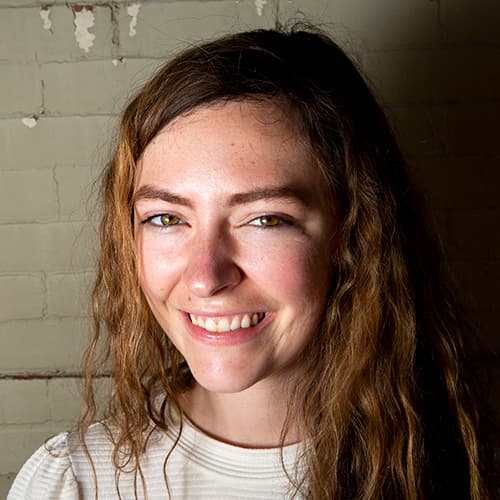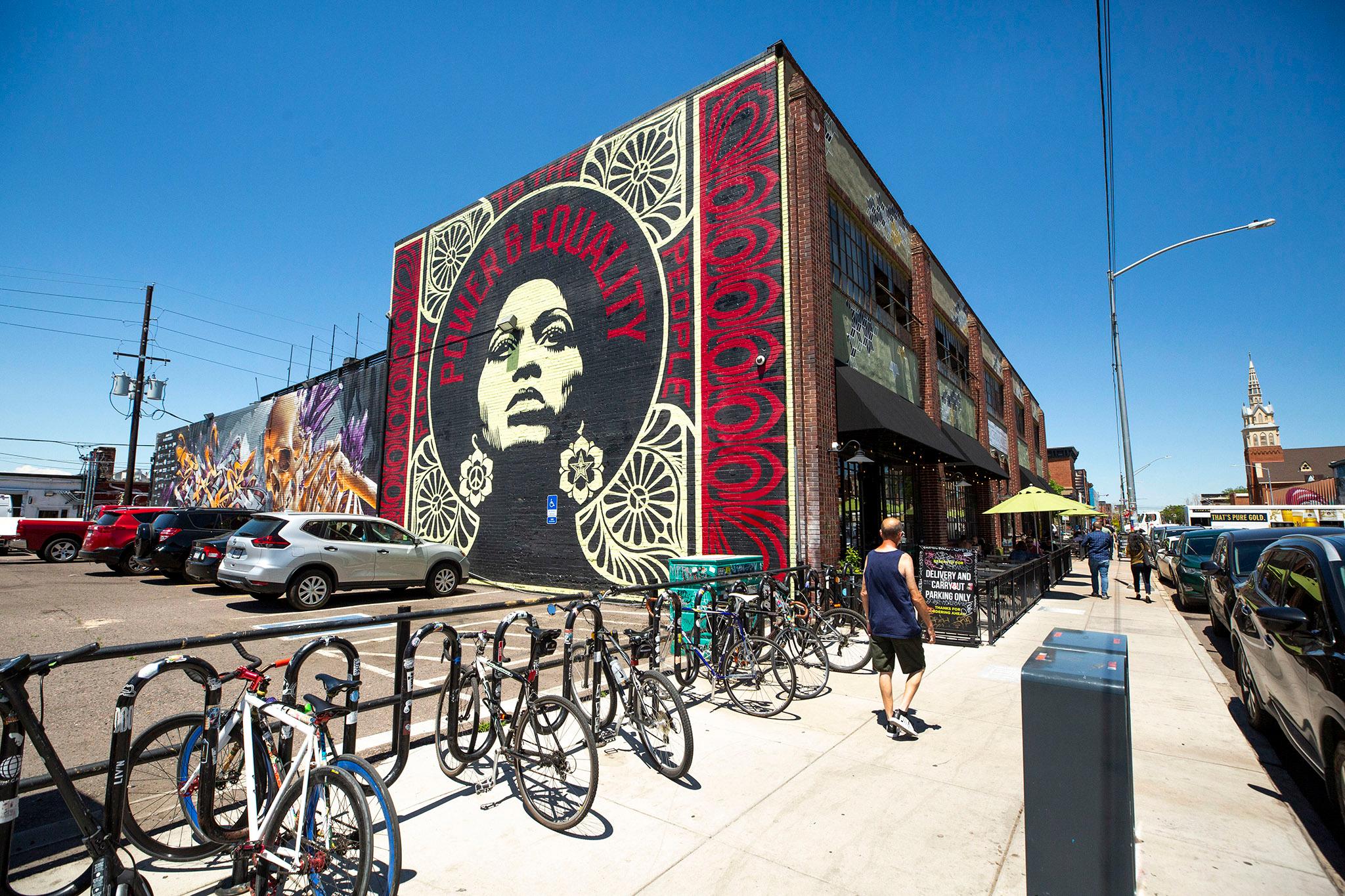For over a decade, CRUSH Walls, the largest annual street art and mural festival in Colorado, has colored the walls of the RiNo Art District. It's provided opportunities for both local and international street artists, often giving up-and-coming artists the exposure that helped jumpstart their careers. It's helped turn the art district into a tourist destination, attracting visitors from Denver and beyond to check out the murals left behind long after the festival ends.
It has also long been the subject of criticism. Some have called the festival out for its lack of diversity, or for the role they say it's played in gentrification in Five Points. And last year, women came forward with sexual assault and abuse allegations against the festival's founder, Robin Munro.
Last week, Munro announced in an Instagram post that this year's CRUSH would be canceled and that he's going to instead focus on his family and his plans for future festivals. He also said that now that he and the RiNo Art District have parted ways, he hopes to expand CRUSH outside of RiNo in the future.
"I'm taking time off to be with my family and work on my own art practices," Munro told Denverite in an email after his announcement. "This was a decision I had made well before any of these false accusations. This is something that I had talked about with several of my friends and family members....I'm not sure people understand how difficult it is to put together an event like CRUSH. After 11 years, I feel like I'm well deserving of some time off."
We spoke to some of the people who might be particularly impacted by CRUSH's cancelation and departure from the area. We asked artists, business owners, coordinators of other festivals, and women who came forward with allegations against Munro: What does a summer without CRUSH mean for you?
Jessica Vaughan came forward with allegations against Munro last fall.
She was happy when she heard the news that the festival was canceled, saying that if she and the other women hadn't come forward, CRUSH would still be happening in RiNo this year.
"Finally, there's a consequence to who he is," Vaughan said. "Not even what he's done, but who he is as a person."
She said she laughed a bit when she saw that Munro plans to expand the festival into all of Denver in 2022.
"Part of me wants to be like, Yeah, I'd like to see him try," she said. "Once someone has been outed as what he is, people aren't going to want to work with him. Or I would hope, anyway."
She said his alleged survivors wouldn't let CRUSH spread all over Denver.
"I know I'm not going to let that happen. Or, I'm going to try not to let that happen, anyway, as small and little as I am," she said.
Nathan Larramendy is the director of Visions West Contemporary, a gallery on Walnut and 26th. He said he hasn't followed the controversy surrounding CRUSH closely enough to comment on it. And while his thoughts are with the people involved, he said when he heard about CRUSH's cancelation, his first thought was, what would happen to the artists?
"They received grants to do this. I appreciate that they brought in international artists here that helped put Denver on the map. You know, seeing majorly famous artists next to more unknown and up-and-coming Denver-based artists," he said. "So, I think it's a big blow to the arts community."
The impact on his own gallery is smaller. While Larramendy's business is adjacent to CRUSH's, he said the festival didn't really bring many more patrons into the gallery. He said the gallery world and the mural world are generally pretty separate.
"They coexist, but they don't always intermingle," he said. "I feel like one of the shortcomings of CRUSH here is that they didn't utilize Visions West Contemporary as a facet of that community in which we absolutely want to be involved in. I wish that it was more inclusive for us as well. I've wanted to do exhibitions that would complement the CRUSH festival"
He thinks RiNo will continue to thrive without CRUSH and that there are groups like Redline keeping the spirit of the artsy area alive and well.
"lt's always going to be lively, and it's always going to carry this tradition on," he said. "It might not be through CRUSH-sponsored murals, but I think this neighborhood's definitely dedicated to maintaining that aesthetic and that practice."
Larramendy said the change is also an opportunity for RiNo to reinvent itself.
"That's what needs to happen. I mean, art always perseveres in the end," he said. "So if an organization is led by someone that society isn't seeing as acceptable because of heinous things, artists won't ultimately support that."
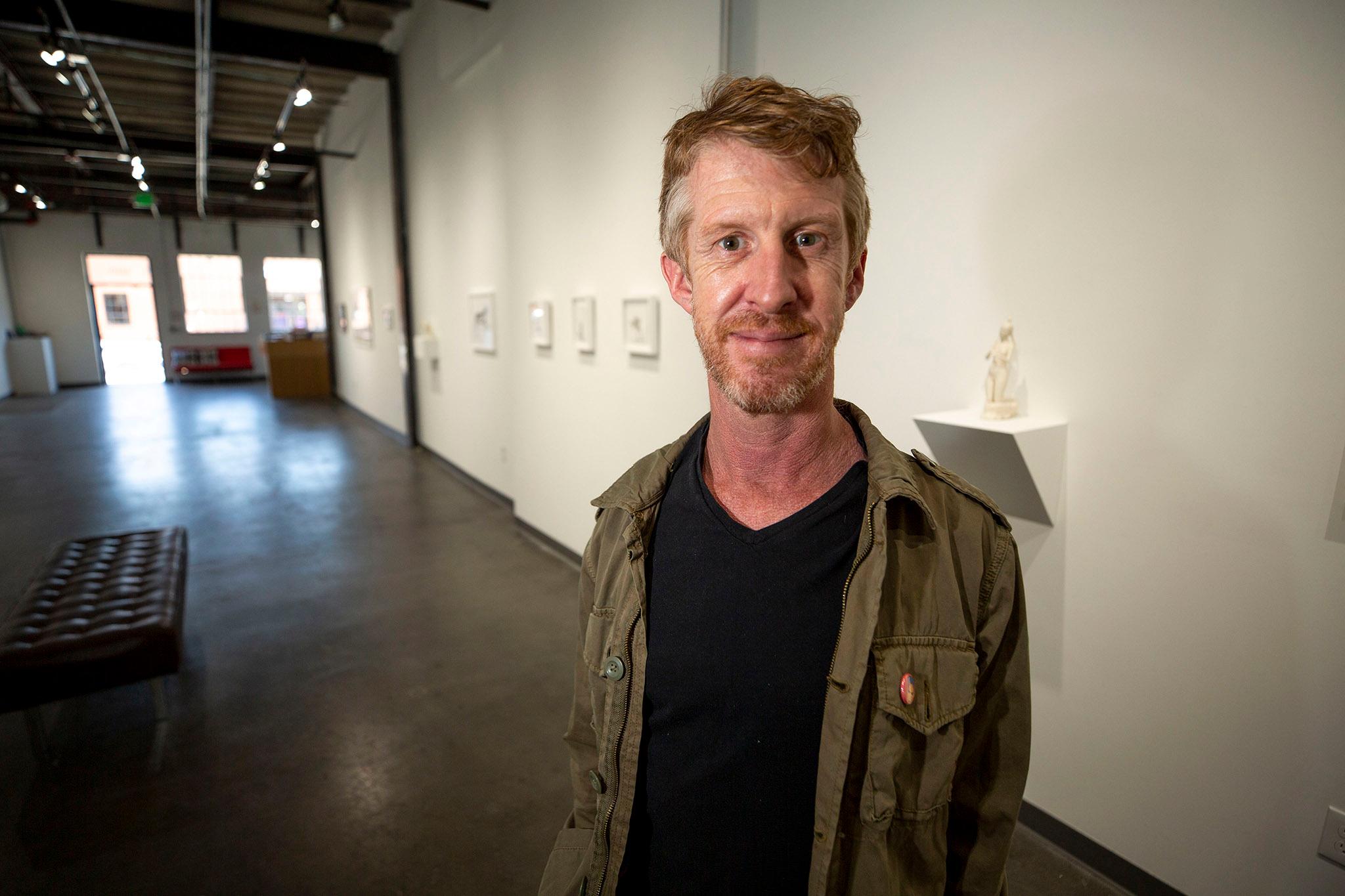
During CRUSH one year, Il Posto owner Andrea Frizzi commissioned a mural to be painted in his restaurant.
It was a blown-up recreation of a black and white photo taken of his parents on their wedding day. In it, his father is kissing his mother. Frizzi said his parents are no longer alive.
"I put them on the wall so I can tell them every morning, good morning," he said. "And every night, good night!"
The mural wasn't technically part of the festival, but Frizzi had it commissioned during CRUSH on purpose. He said it's his favorite time of the year.
"I was so thankful to be part of all the events. I mean, doing it during CRUSH, even if I commissioned it, it created this beautiful dynamic that is just different," he said. "I absolutely love CRUSH. And I'm Italian. So I love energy, and I love festivals, and I love street fairs, and I love people around, walking and holding hands and eating ice cream and smiling and laughing."
He said that this last year, during the pandemic, CRUSH was the only time things felt normal.
"The energy was back -- you know, the energy we lost during this corona situation," Frizzi said.
He said he was sad to hear that the 2021 festival had been canceled. Part of him still hopes that CRUSH will come back.
"I felt this sense of emptiness," he said. "I was like, How is this even possible? We have these beautiful murals everywhere, and all these beautiful signs."
He said that a future CRUSH that exists outside of RiNo won't be as effective, because the area is pedestrian friendly, and nowhere else has the same energy.
"I love seeing people in the morning and saying good morning to everyone, and they say good morning to me," Frizzi said. "CRUSH was a big part of being here and being part of this amazing community, and welcoming people from somewhere else to come to RiNo to show them how cool this neighborhood is."
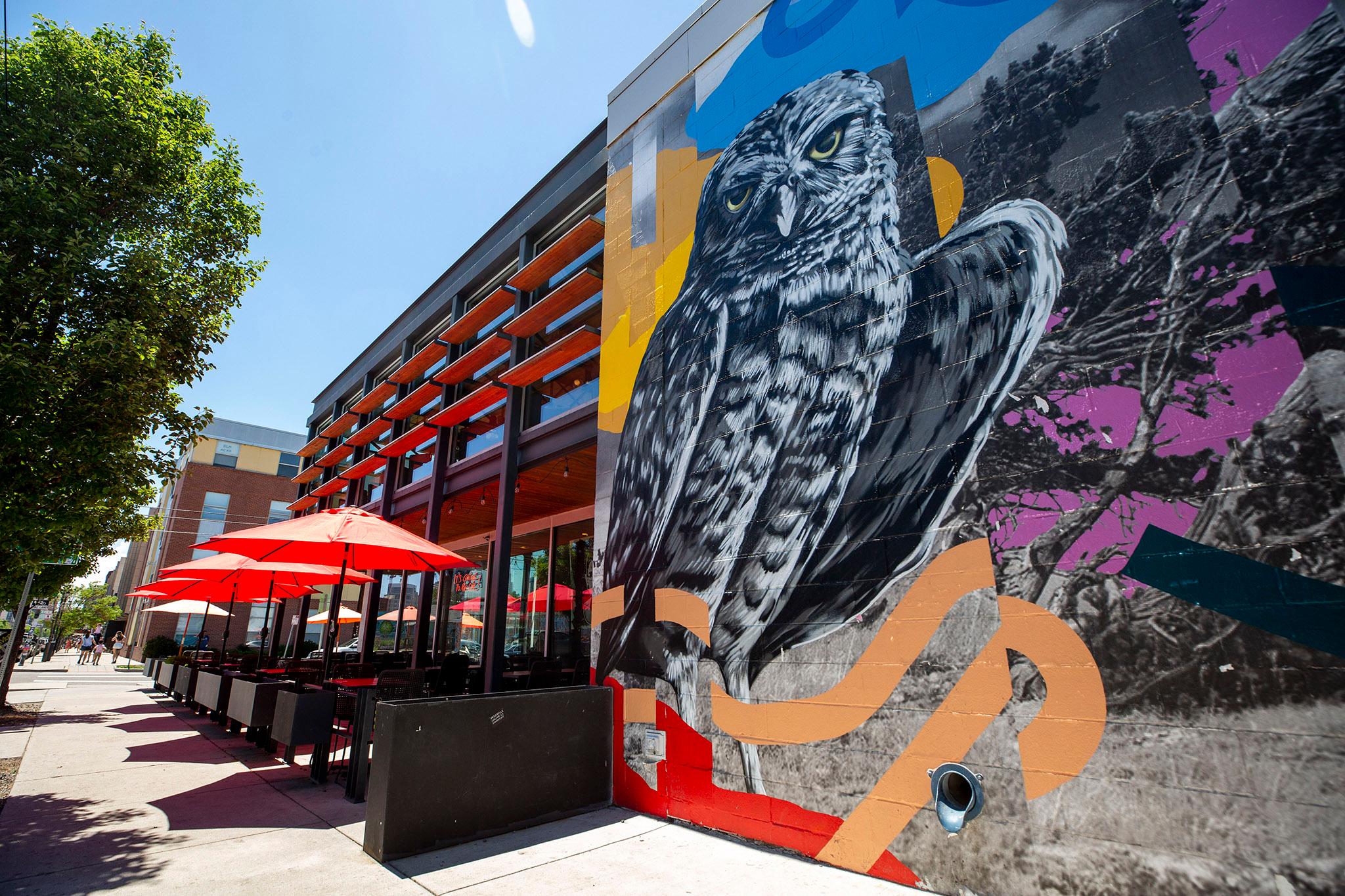
Zach Spott owns the Green Seed inside Denver Central Market, which is normally in the heart of the festival. He said CRUSH leaving was a significant loss.
"That week draws in a ton of business for all the restaurants and retail in the area," he said. "We're busier than we are any other week of the year."
He said that in the last couple of years, after CRUSH partnered with groups like event organizer Two Parts and started providing a more curated experience, the festival had started picking up steam and becoming a real attraction to folks outside of Denver. He hopes that RiNo will do something to fill the hole CRUSH left behind.
"My main feeling would be that over time when there's not this evolution of art and this energy behind it, that it might be relatively impactful on the neighborhood," he said. "I don't want to use the word stale, but it could lose some of its prestige."
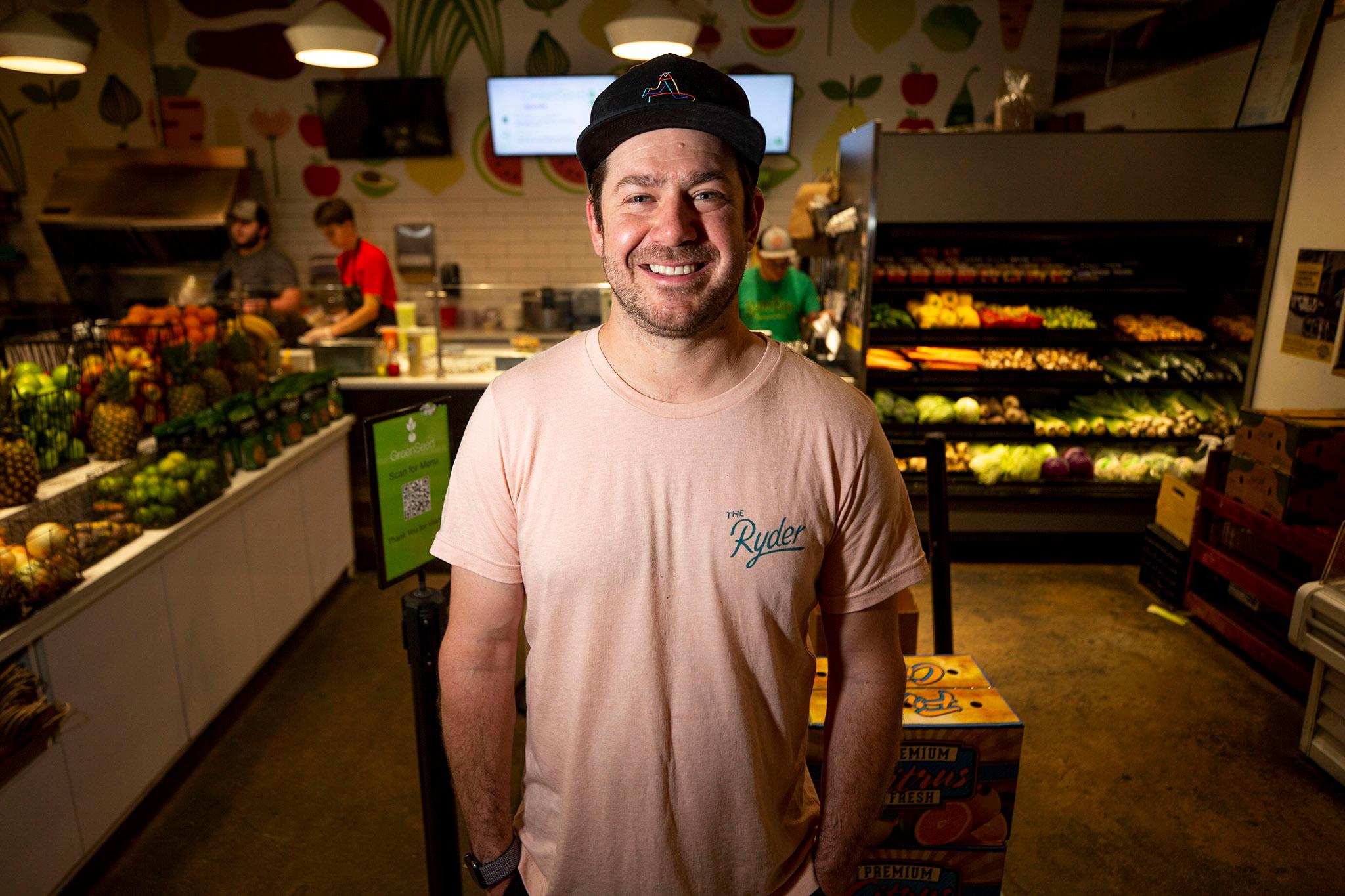
Dr. Obe Ariss is the co-owner of The Preservery, a restaurant in RiNo.
Ariss said that CRUSH week did bring in some extra business each year, and that any added business to the neighborhood is great. But for him, it's more about the artwork that CRUSH has contributed to RiNo.
"I love all the mural and the artwork in the neighborhood," he said. "That's what's important for me, and it's one of the things that makes the neighborhood special."
Still, he said that RiNo is a vibrant community, and that street and mural art has a long history in Denver that goes beyond CRUSH. He's also optimistic that CRUSH's cancelation and potential departure from RiNo won't have too big an impact on business.
"If it goes, I'll live," Ariss said. "If it stays, I'll live."
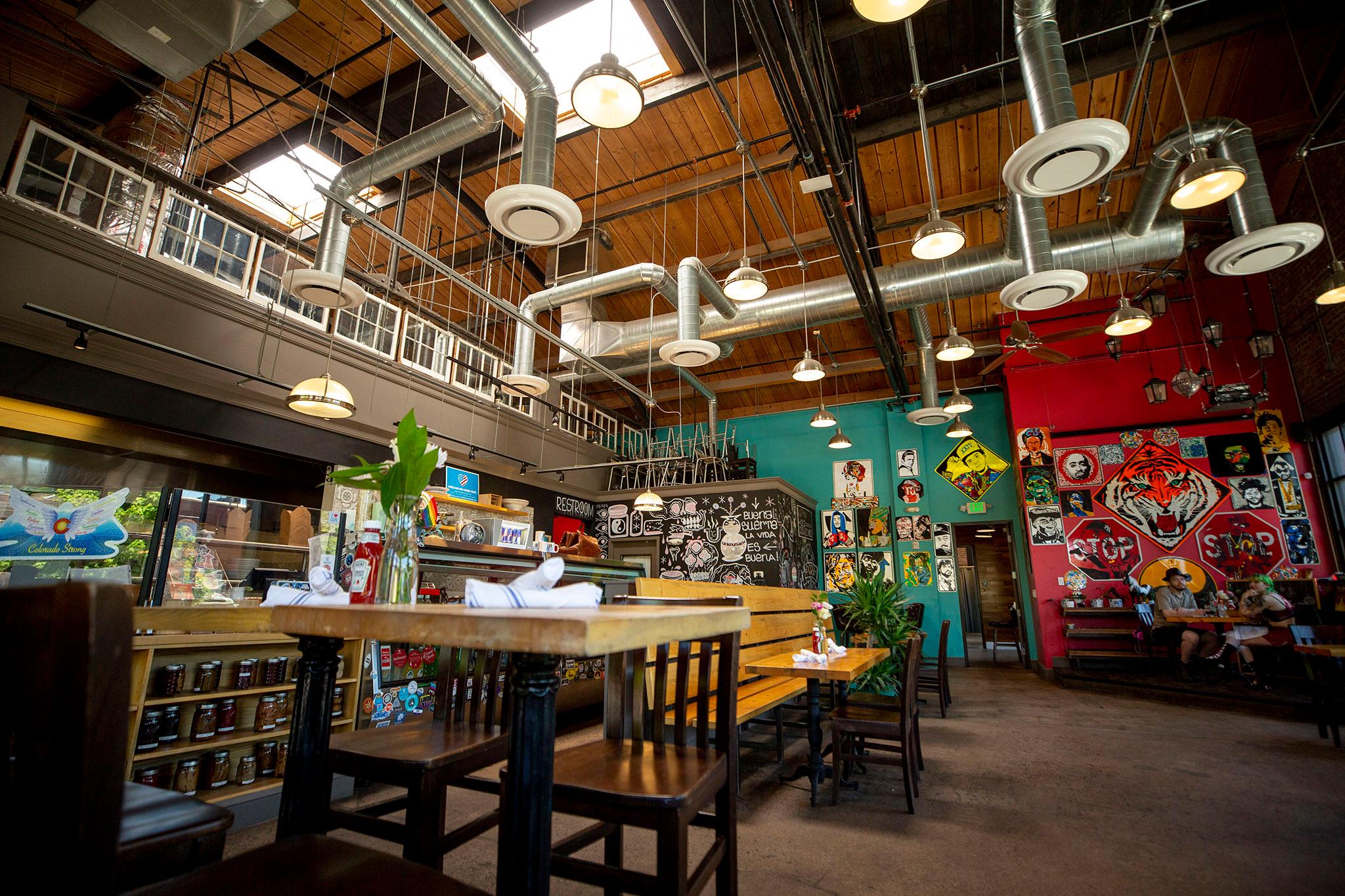
Shannon Galpin is a street artist and activist. She's been outspoken about bullying and abuse in Denver's art scene, including the allegations against CRUSH's founder.
"I would have been shocked if CRUSH was happening this year, given the drama of the past year," Galpin said. "And I think that there have been enough street art festivals that have emerged over the last two years to fill the space that are led by much more socially conscious and positive festival directors that there doesn't need to be a CRUSH Walls."
In recent years, smaller festivals like Street Wise Boulder, Black Love Mural Festival, Babe Walls, Colfax Canvas and COLORCON in the Golden Triangle have popped up around Denver. Galpin said these festivals are more positive and more connected to the neighborhoods and communities they're based in than CRUSH was.
"I just hope that the community continues to support artists and festival directors and projects that are socially conscious, and that really listen to artists," Galpin said.
Gregg Deal is an artist who's participated in CRUSH in the past.
He said that, for a number of reasons, he had already decided he wouldn't participate in CRUSH this coming year, even before the allegations against Munro surfaced. He said that CRUSH doesn't need to define muralists' careers in Denver, that artists don't need to be reliant on any one festival.
"This art industry is a grind. And you've definitely got to have some grit," Deal said. "Within the community of art, events ebb and flow. That's just the nature of things. And I think what's important is connecting with community, and having contacts and people who will support your work and what you do, so that you're able to make it through those tough months. "
Deal said that the challenges presented by the CRUSH controversy and its eventual cancelation might be good for the art community.
"I think it helps all of us work harder and try to make those connections better," he said. "So I don't necessarily see things like this as a bad thing. I think it's just life."
Robert Gray is the founder of the Black Love Mural Festival, an all-Black mural art festival launched last year.
He likewise said that local artists won't be too impacted by CRUSH's cancelation.
"It doesn't hurt the arts community at all. The local community, we have enough festivals here," he said. He said the only artists who might lose opportunities are those from out of state, who don't know about the other festivals being built in Denver.
"CRUSH, it's not going to make or break this art scene here in Denver. We have a lot of people who are putting their heart and soul into it," he said.
